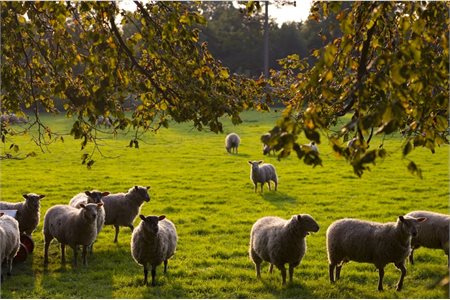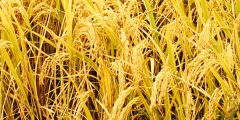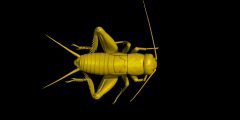Meeting the protein needs of a growing, and aging, global population with healthy and sustainable protein sources
November 3, 2021
We need sources of protein that don’t harm human or planetary health, writes Prof Andy Salter. Humans require sufficient supplies of dietary protein, of appropriate quality, to grow and maintain health throughout their lifespan. Protein quality is dependent on both the amount of essential amino acids contained and its digestibility. While animal-derived foods represent rich …
Giving up meat and eating plants instead: Is it really that simple?
October 25, 2021
The complexities of nutrition and the misrepresentation of the livestock/meat industry are creating a simplistic view of much more complex systems, say Andy Salter and Phil Garnsworthy A Guardian commentary piece last week suggested that British meat-eating habits were rather out of control, and would need to be reduced by at least 20% (a statistic …
Exploring diversity in pearl millet seed – An interview with Brighton Gapare
February 12, 2021
Brighton Gapare is a joint Nottingham-Rothamsted PhD Student 2019–2023. His project is entitled ‘Exploring genetic diversity in grain structure, composition and functionality of pearl millet germplasm’. His supervisors are Dr. Rahul Bhosale (UoN), Prof. Malcom Bennett (UoN) and Prof. Peter Shewry (RRes). He also works with Dr Neil Graham (UoN), Prof. David Cook (UoN), Prof. …
How can the winged bean improve our futures? An interview with Chong Yuet Tian
October 2, 2020
Tian is a Future Food Beacon Malaysia PhD student under the supervision of Prof. Festo Massawe, Dr. Hui Hui Chai and Dr. Ajit Singh. She obtained a BSc (Hons) in Agricultural Science before joining University of Nottingham Malaysia to research genetic improvement of crop plants, especially minor and underutilised crops. She is currently researching winged …
Crops for the future: the case of the winged bean – by Chong Yuet Tian
September 30, 2020
Future Food Beacon researchers in Malaysia and the UK are working with partners globally to utilise crop diversity to plug gaps in food production. We aim to address nutrition security challenges by making a diverse range of healthy food crops available and accessible to all. In addition to the flagship project on Bambara groundnut, Future …
Reducing protein malnourishment: an interview with Joe Godrich
July 1, 2020
Joe Godrich is a PhD candidate with the Future Proteins Platform. Joe’s project is titled: Natural protein ingredients – the impacts of reduced refinement. Joe is supervised by Dr Jo Gould, Prof Tim Foster, and Dr Peter Rose. The project investigates the structure-function relationship of protein produced without high refinement. Prior to joining the Future …
Making sense of food waste: an interview with Hina Kamal
Hina Kamal is a PhD candidate with the Future Proteins project. Hina’s project is titled Food recycling: Utilising food waste for valuable proteins. Her supervisors are Prof Asgar Ali, Dr Le Cheng Fohm, and Dr Tim Parr. Hina’s research is focused on food waste recycling, in the context of understanding protein extraction methods, protein yield …
Making better proteins: an interview with Kamil Szepe
Kamil Szepe is a first-year PhD student, part of the Future Proteins Platform. Their project is titled: Improving the nutritional quality of future protein and they are supervised by Dr Simon Avery, Prof Paul Dyer, Dr Rebecca Ford, and Dr Cormac O’Shea. Kamil’s PhD investigates the effects that nutritional composition of growth media and induction …
Working with worms: an interview with Dr Carlos Lopez Viso
June 29, 2020
Carlos Lopez Viso is a postdoctoral researcher on the Future Proteins Platform. He is working on the production of mealworms as a new source of sustainable proteins for aquaculture. In order to do that, he is applying genetic techniques to modify the protein and fat content of these insects. Prior to joining the Future Food …
The Future Proteins Platform
June 24, 2020
Protein is an essential part of the human diet, providing an important building block for the body, as well as being used to build and repair tissue. As populations become increasingly wealthy, and urbanised, so the way they consume protein changes. Increased demand for meat, fish and dairy products is seen throughout the world as …











Recent Comments